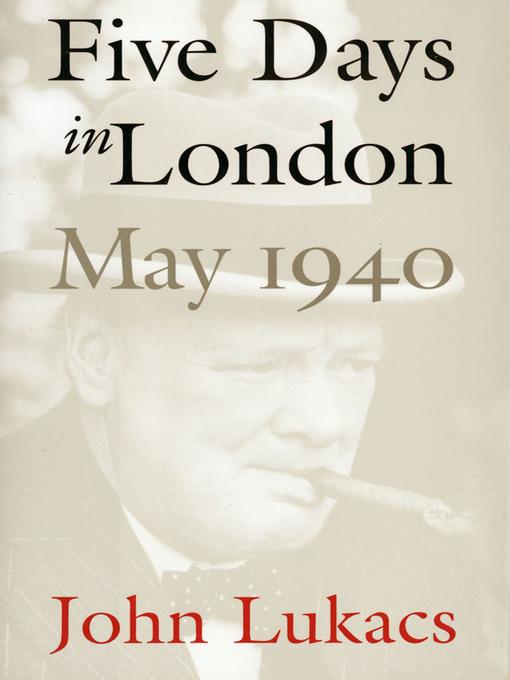
Five Days in London, May 1940
کتاب های مرتبط
- اطلاعات
- نقد و بررسی
- دیدگاه کاربران
نقد و بررسی

Starred review from August 30, 1999
Eminent historian Lukacs (Thread of Years, etc.) delivers the crown jewel to his long and distinguished career with this account of five days--May 24-28, 1940--"that could have changed the world." Lukacs posits that it was during those five days in London "that Western civilization, not to mention the Allied cause in WWII, was saved from Hitler's tyranny." A grand view, to be sure, but the consequences are not in dispute: "Had Britain stopped fighting in May 1940, Hitler would have won his war," writes Lukacs. "Thus he was never closer to victory than during those five days in May 1940." A quarter-million British troops were trapped by the Germans at Dunkirk. The British public, ill-informed about this reality, remained apathetic, and the War Cabinet was divided over what action to take. Neither the United States nor the Soviet Union had yet entered the war, but Churchill resolved to fight "till Hitler is beat or we cease to be a state." Lukacs draws heavily on newspapers and public opinion research of the time to re-create the rapid series of events that turned the tide, swaying both the citizenry and the War Cabinet to rally behind Churchill. Though Churchill did not win the war in May 1940, as Lukacs puts it, he "did not lose it" then. Lukacs covered some of the same turf in The Duel, yet this new work focuses on these five days with a microscopic view. It is the work of a man who lives and breathes history, whose knowledge is limitless and tuned to a pitch that rings true.

September 1, 1999
By May 1940, just one year into World War II, Great Britain stood virtually alone against Hitler and the unstoppable German Army. Belgium and France were only days away from capitulation, and the British Expeditionary Force was being squeezed into the beachhead at Dunkirk. Things were not going at all well for Britain, and Churchill and his War Cabinet had some tough decisions to make. Lukacs, a history professor and prolific author (The Hitler of History) examines the dynamics of the five days, May 24-28, 1940, when Churchill and his War Cabinet actually debated whether to negotiate peace with Hitler. This scholarly study reveals the drama, uncertainty, suspense, and courage of the men who would ultimately decide the fate of Britain. This is a marvelous example of the complex, behind-the-scenes diplomatic wrangling involved in seeking a national advantage in the deadly game of strategic move and countermove. Recommended for public and academic libraries.--William D. Bushnell, USMC (ret.), Brunswick, ME
Copyright 1999 Library Journal, LLC Used with permission.

October 15, 1999
Lukacs, who recently retired as a history professor at Chestnut Hill College, is a leading chronicler of modern U.S. and European history. Author of several broader studies of World War II and its major protagonists, he focuses here on a brief period in 1940 when Great Britain had to decide whether to fight on alone or negotiate with Hitler. Churchill had been prime minister for only a few weeks; his support, even within his own party, was wobbly at best. But the meetings of the British War Cabinet from May 24 to 28, 1940, with British troops surrounded at Dunkirk, produced a political and ultimately national commitment to resist the German juggernaut. Lukacs draws on government materials documenting the debates at these meetings, press reports, and the work of Britain's leading polling organization, Mass-Observation. He argues that, although the war could not have been won without the U.S. and Russia, Churchill's efforts in these key Cabinet meetings ensured that the war would not be lost before they joined the fight. ((Reviewed October 15, 1999))(Reprinted with permission of Booklist, copyright 1999, American Library Association.)

























دیدگاه کاربران